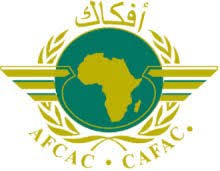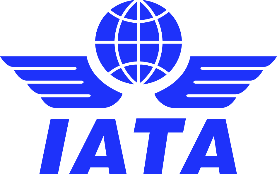


The International Air Transport Association (IATA) and African Airlines Association (AFRAA) have joined forces with the African Civil Aviation Commission (AFCAC) on a three-year safety project. The objective is to provide technical support to the African air operators of states party to the Single Africa Air Transport Market (SAATM) to ensure that they achieve and maintain global aviation safety standards.
Launched today, the initiative is backed by African Development Bank grant funding provided to AFCAC and is specifically for carriers in countries that have signed up to the African Union’s (AU) flagship Single African Air Transport Market (SAATM) program.
The project will identify eligible airlines, conduct gap analyses and recommend corrective actions for each participating carrier to prepare them for IATA Operational Safety Audits (IOSA) or IATA Standard Safety Assessment (ISSA) evaluation.
In addition, participating airlines’ personnel will receive quality and safety management systems training. IATA, AFRAA, and AFCAC will also host workshops and training sessions held at their facilities in Nairobi, Johannesburg and Dakar.
“Depending on the size of their organization and aircraft they operate, airlines wanting to take advantage of the SAATM’s market and commercial expansion benefits are required to be certified either through IATA’s Operational Safety Audit (IOSA) or Standard Safety Assessment (ISSA) programs. Both safety programs are globally recognized, and part of the African Safety Targets of Abuja Ministerial Declaration hallmarks of aviation safety. We are committed to opening up Africa’s skies through SAATM and supporting the region’s airlines in doing so,” explained Tefera Mekonnen Tefera, Secretary-General of AFCAC.
“This project will not only bolster safety standards in line with the Abuja Declaration on Safety in Africa. It will also help operationalize the SAATM and reinforce the development of sustainable commercial air transport in Africa, which is crucial to the recovery and future growth of economies throughout the continent that have been devastated by the COVID-19 crisis,” said IATA’s Regional Vice President for Africa and the Middle East, Muhammad Ali Albakri.
“The ultimate goal of the project is to improve safety levels for the airline sector in Africa. Indeed, the 2012 Abuja Declaration safety targets stipulate that all African-based airlines, attain IOSA or ISAA certification by the end of 2022,” said Abdérahmane Berthé, Secretary General, AFRAA.
IOSA is an internationally recognized evaluation system that assesses airlines’ operational management and control systems from a safety perspective. The auditing process creates a single worldwide standard. IOSA’s roll-out and adoption across Africa over the past eight years has led to a significant improvement in the region’s safety performance for commercial airlines. African carriers on the IOSA registry had an accident rate of nearly half that of non-IOSA operators for 2015 -2019. IOSA has also minimized the number of duplicate audits improving operational efficiency and reducing costs for participating airlines.
ISSA is a voluntary safety evaluation program derived from IOSA but tailored for operators of smaller aircraft that are not eligible for IOSA.
IOSA is a requirement for IATA and AFRAA membership. Therefore, the primary beneficiaries of this initiative are non-member airlines of these organizations in Africa.
SAATM was launched in January 2018 and is critical to the AU’s integration agenda. It provides a logistics pillar which is crucial to the success of the Africa Continental Free Trade Area (AfCFTA), which is envisaged to be the world’s largest single market for goods and services, facilitated by the movement of people and promoting trade and economic integration. To date, 34 of the AU’s 55 member countries have signed the commitment to establish the SAATM.

